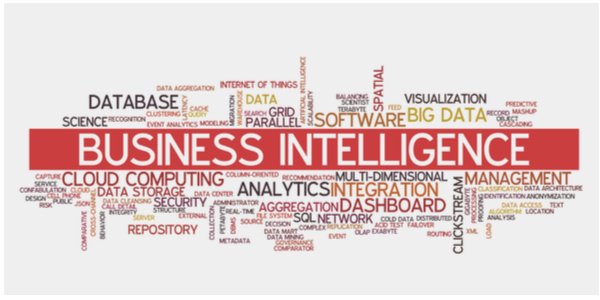
Top 4 Benefits of Outsourcing Business Intelligence Solutions
High quality data insights can help enterprises sustain their operations during extreme economic conditions. Such conditions can be as extreme as the 2008 financial catastrophe. Today, the presence of massive amount of data is used not only to create sustainable operation strategies but also to give businesses a competitive edge. In reality, a majority of enterprises fail to milk this data. This is because of the lack of skilled resources and the right analytics tools. Enterprises who have no experience in the analytics field end up investing in the wrong kind of tools that results in a huge financial loss. These are just some of the reasons that reinforce the importance of outsourcing business intelligence solutions. Here’s looking at the top 4 benefits of outsourcing these services to an expert third-party vendor.
Pay for what you use – A professional solutions provider assesses an enterprise’s short term and long-term goals and customizes a service package accordingly. They align the service package to an enterprise’s strategic initiatives that are taken on an immediate basis. This allows enterprises to pay only for the services they have used. Such a flexible service package comprises a variety of solutions such as reporting dashboards, BI visualizations, content analytics, data warehousing, master data management, data integration, among others.
Superior cloud technology – The growth of operations generates massive amounts of data. Such data volume can no more be stored in the conventional data centers. Enterprises are obligated to invest in heavy duty physical servers to store the data. Business intelligence vendors provide a cost-effective alternative of this investment. They migrate their client’s entire work environment to cloud platforms such as Azure cloud computing, Amazon Web Services, and others. This helps enterprises to save on operational expenses and avoid the complexities of managing a server.
Better governance control– It is not at easy task to analyze and manage huge volumes of data while staying compliant with the GDPR regulations. Since business intelligence is their core operation, service providers stay at the top of every update in the GDPR regulations. They have stringent data policies in place that help them stay compliant with all the pertinent rules. They use an end-to-end encrypted server to transmit data. This helps avoiding the risk of exposing confidential data to any unwarranted user.
Improved marketing efforts– The expertise of a third-party service provider stretches from creating marketing mix models to the contemporary complex attribution models. These analytical models help in understanding the long-term impact of a marketing campaign on sales. It also helps in determining a consumer’s possible reaction to a product that is about to be marketed. These analytical models provide rich insights that can be harnessed to create effective and interactive marketing campaigns.
Conclusion
Prior to a partnership, enterprises must determine their organizational readiness to move their operations to cloud. Once determined, enterprises must carefully explore multiple prospects before finalizing a partnership. Thorough domain knowledge, operations at par with the industry best practices, Microsoft certification, global presence are some of the important criteria that must be considered before partnering with a service provider.




Mong được đọc thêm nhiều bài viết hay như thế này.